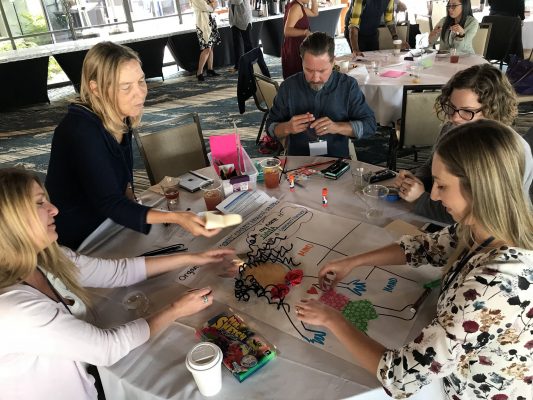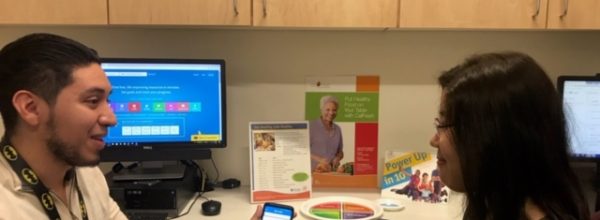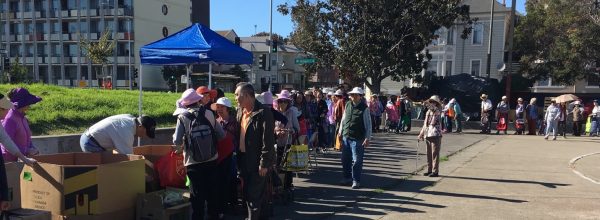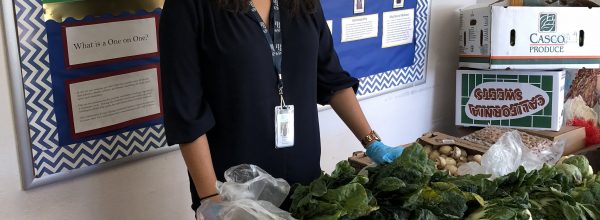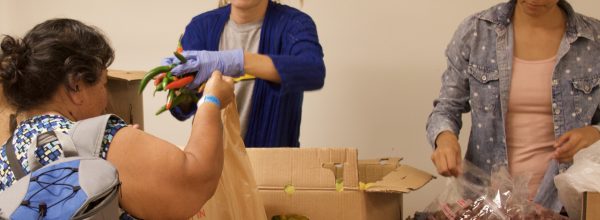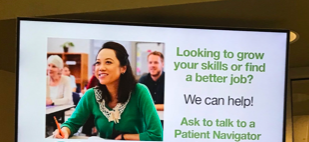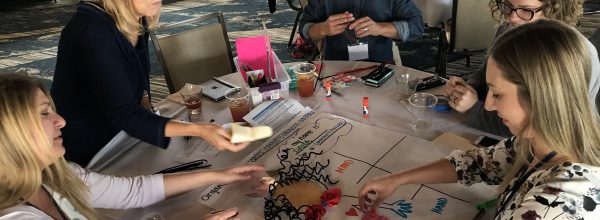
Project Activities: Understanding Partners’ Needs
The ROOTS team also used human-centered design principles to better understand their partner’s needs.
While the details of the data sharing agreement were being worked out, West County staff used the down time to better understand their community partners’ needs, using human-centered design principles and tools. To collect data in an engaging way, the ROOTS project lead developed a ‘Discovery Kit,’ a set of nine activities designed to help partners reflect on and express their thoughts about collaborating with West County around school absenteeism. Examples of kit activities included hands on projects that explored participants’ attitudes and expectations about the school/health center collaboration, ways that the clinic might be able to influence school absenteeism, and causes of school absenteeism.
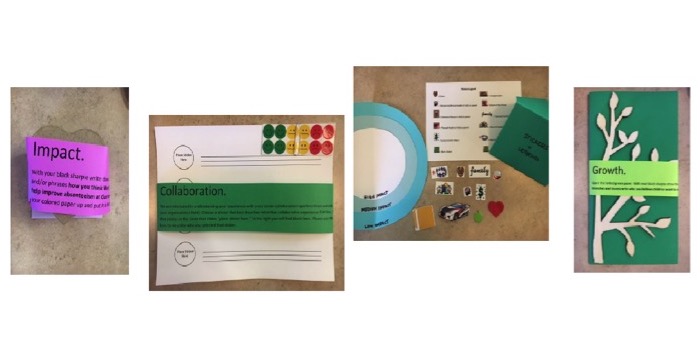
Discovery Kits were distributed to the school superintendent, two school board members, the school secretary, a 5th grade teacher, and the attendance case manager to gather a variety of perspectives. After Kit recipients worked through the exercises over a three week period, ROOTS staff conducted a one-hour interview with each one about the experience. Exercises and interviews were analyzed to identify common themes.
The interviews with school district staff and board members revealed four areas of health-related needs: 1) more mental and behavioral health services in schools, 2) parenting classes, 3) social and emotional support for teachers, and 4) training in trauma-informed care. WCHC also identified other areas where they could collaborate with the school system, including around nutrition education.
In addition, WCHC found out that there were misunderstandings in the community about the cost of the health center’s services. Many people thought that WCHC required insurance, for example, and many were unaware of the center’s sliding scale fee structure. The fact that the ROOTS Project Team lead was a graduate of the school district seemed to significantly increase trust between school system and health center staff. A number of participants also commented on the positive impact that seeing a graduate from the school in a leadership role at the health center could have on current students. This connection led to the creation of an internship at the health center for students to help analyze interviews.
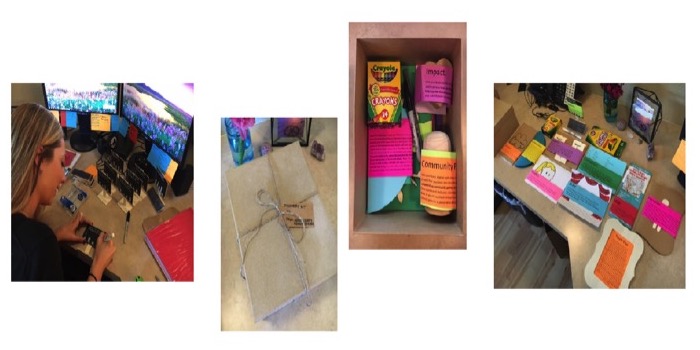
In addition to yielding numerous insights about how the health center and the school system could both benefit from partnering, the reactions to the Discovery Kits were highly positive.
“I like the idea that this kit was three-dimensional. It really gave me the opportunity to explore things from a different perspective. While I don’t consider myself creative, I felt creative. And for those like me that don’t consider themselves creative, they will find that the interview provides them with every opportunity to communicate their perspective.”
~ Guerneville Resident
______
“It was cool to go through these activities and synthesize my thoughts. Getting to the journal at the end kind of made me think about what all this means. Where do I see gaps or opportunities?”
~ Community Outreach Coordinator
______
“I call it the fun kit! It allowed for processing and thinking deeper. I was able to be creative and through this exploration I was able to reconsider projects. It really triggered my passions!”
~ Community Organizer

